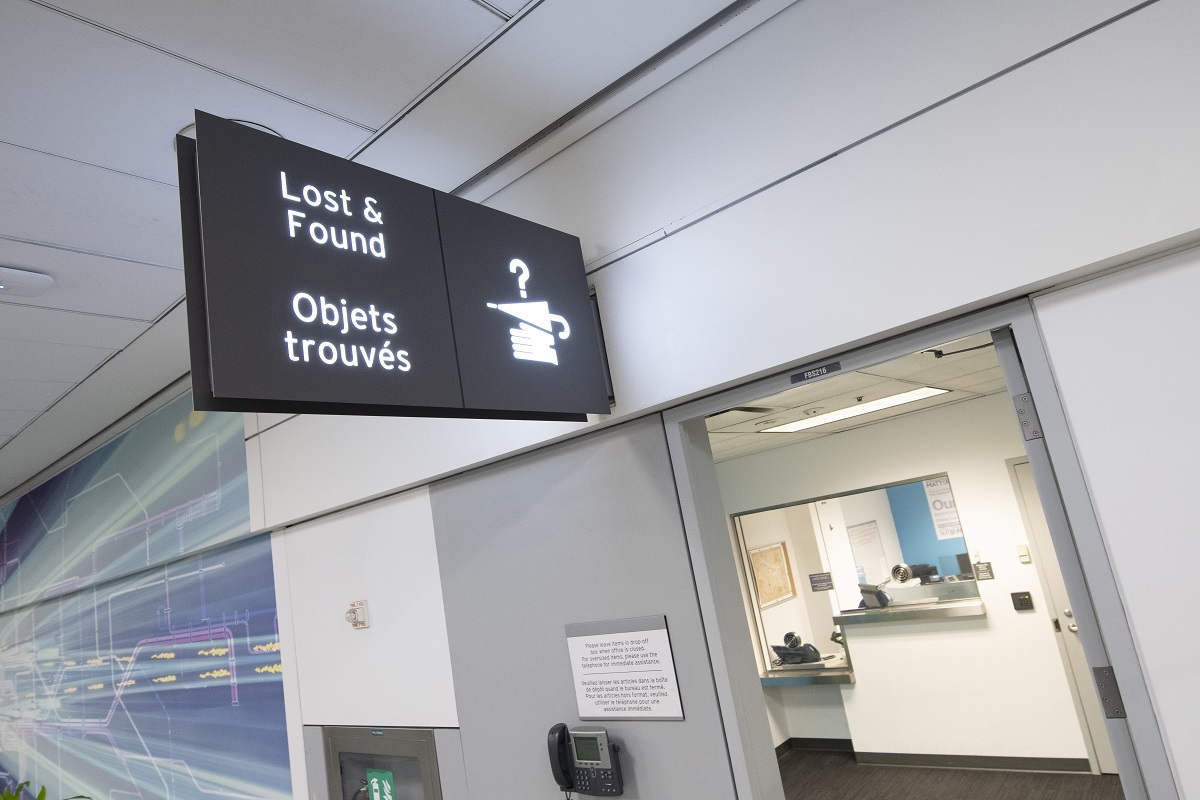
Thank you for choosing to travel through Hamad International Airport (HIA)! We understand how distressing it can be to misplace personal belongings, and our dedicated Customer Service Team is committed to helping you recover any lost items. The Lost Property Office is your go-to resource for registering lost belongings, addressing inquiries, and facilitating the retrieval of items that may have been lost within the Passenger Terminal Complex.

Items Lost on Flights
If you believe you’ve left an item on a Qatar Airways flight, please take the following steps:
-
For Qatar Airways Flights: Click the link provided on our website for quick assistance. Alternatively, you can send an email detailing your situation to Click here. Be sure to include your flight number, date of travel, and a description of the lost item to expedite the process.
-
For Other Airlines: If your item was lost on a flight operated by another airline, please contact Qatar Aviation Services (QAS) Lost and Found by emailing [email protected]. They will guide you through the necessary steps to locate your belongings.
.jpg)
Items Lost Inside the Passenger Terminal
For items misplaced within the terminal, we recommend the following:
-
In-Person Assistance: Visit the nearest HIA Information Desk where our friendly staff can provide immediate help and guidance.
-
Outside the Airport: If you are currently off airport premises, you can reach out directly to the HIA Lost Property Office by clicking on the 'Contact Us' link on our website or by emailing Click here. When you do, please provide a comprehensive description of the lost item, which should include:
- Brand/Model and Color: This helps us identify the item more accurately.
- Flight Number and Date: Include the specific flight you were on when the item was lost.
- Time and Location: Mention the approximate time and specific area (like a terminal zone or specific gate) where the item was last seen.
- Photographic Evidence: If possible, attach a photo of the item to assist our staff in identifying it swiftly.

Important Information
Hamad International Airport is authorized to assist with inquiries regarding items lost within the airport's premises. Our Lost Property Office operates with specific policies regarding the handling of lost items:
-
Retention Period: Items submitted to the Lost Property Office will be retained for up to 30 days. This duration varies based on the category of the item.
-
Post-Retention Policy: After the retention period, unclaimed items may be donated to charitable organizations. Unfortunately, these items will not be available for retrieval after being donated.
-
Liability Disclaimer: The airport does not accept liability for any items lost or left behind within its premises. We encourage all travelers to keep personal belongings secure and to report any lost items promptly.

Retention Policies by Item Category
Direct Disposal:
-
- Items that fall under this category will be disposed of immediately and include excess baggage, perishables, and dangerous goods.
7-Day Policy:
-
- This includes items like neck pillows, water tumblers, unbranded clothing, caps, toys, umbrellas, walking sticks, wheelchairs, and Zamzam water. These items will only be held for a week before being discarded or donated.

30-Day Policy:
-
- Precious Metals and Gems: Items such as gold, silver, rubies, emeralds, sapphires, and diamonds.
- Transaction Cards and Cash: This includes credit and debit cards and currency (excluding loose petty cash).
- Official Documents: Items like IDs, passports, driving licenses, and other important documents.
- Electronic Items: Laptops, smartphones, tablets, headsets, smartwatches, power banks, SIM cards, card adapters, and world adapters fall into this category.
- Miscellaneous: Luxury or branded clothing items are also retained for 30 days.

Additional Tips
-
Keep Important Items Together: Use a designated pouch or bag for crucial items like passports, wallets, and electronics to minimize the risk of losing them.
-
Label Your Belongings: Attach tags or labels with your contact information to bags and valuable items, making it easier for staff to return them if found.
-
Use Tracking Devices: Consider using Bluetooth trackers for high-value items like luggage and electronics, so you can locate them easily.
-
Stay Aware of Your Surroundings: Pay attention to where you place your belongings, especially in busy areas like lounges, cafes, and boarding gates.
-
Review Security Footage: If you lose something near a security checkpoint, request to review footage; staff may assist in identifying where the item was left.
-
Know Where to Go: Familiarize yourself with the layout of the airport and the locations of information desks and the Lost Property Office.
-
Keep Digital Copies: Maintain digital copies of important documents (like your passport and IDs) on your phone or in a secure cloud service for easy access.
-
Travel Insurance: Consider getting travel insurance that covers lost belongings, providing peace of mind during your travels.

Thank you for your understanding and cooperation. The goal of Hamad International Airport is to help you recover your lost items as efficiently as possible. Your continued trust in Hamad International Airport is greatly appreciated!































.jpg)










.jpg)


.jpg)

.jpg)





.jpg)
